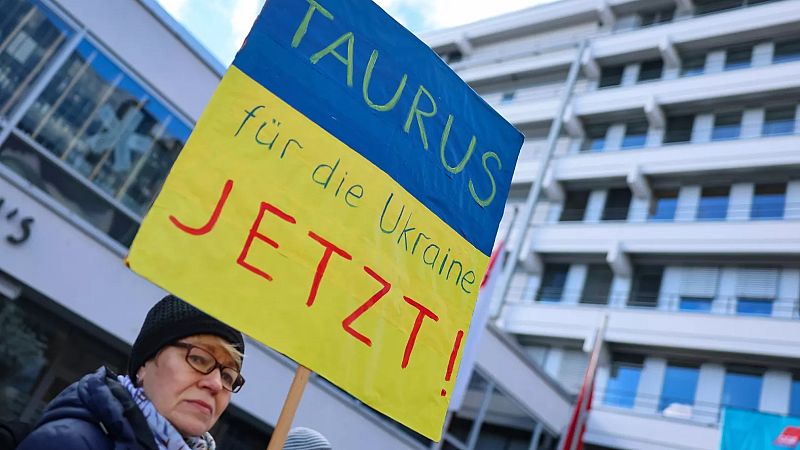
The decision to lift any restrictions on the use of Western-supplied long-range weapons by Ukraine was made months ago, the German chancellor clarified on Tuesday.
"In this respect, yesterday in Berlin, I described something that has been happening for months: namely, that Ukraine has the right to use the weapons it receives, even beyond its own borders, against military targets on Russian territory," Merz said.
On Monday, the German chancellor revealed that there are no longer any restrictions on the range of weapons delivered to Ukraine by Germany, the US, the UK and France.
He stated that Ukraine can now "defend itself, for example, by attacking military facilities in Russia."
"Until recently, it couldn’t do that, and apart from very few exceptions, it hadn't done so either."
The German chancellor stressed that while Kyiv is using its weapons to target Russian military infrastructure, Russia continues to attack Ukrainian "cities, kindergartens, hospitals and care homes."
"Russia attacks civilian targets completely ruthlessly, bombing cities, kindergartens, hospitals and old people's homes - Ukraine doesn't do that."
Russian attacks continue
Ukraine has received ATACMS long-range missiles from the US, Storm Shadow from the UK and SCALP from France, but initially it could only use them against Russian forces on the temporarily occupied territories of Ukraine.
The administration of former US President Joe Biden eased the restrictions only by the end of 2024. According to multiple reports, Kyiv was given a green light to use the US-supplied long-range missiles in Russia’s Kursk region, where the Russian military reinforced its troops with North Korean soldiers.
But until now Germany had refused to provide Ukraine with Taurus cruise missiles. Before coming into office, Merz signalled he would revoke the ban of his predecessor, Olaf Scholz, on delivering German long-range missiles to Kyiv, capable of striking targets at a range of 500 kilometres.
Russia has previously openly threatened that any lifting of restrictions on long-range weapons would mean war with NATO.
Commenting on Merz’s statement on Monday, the Kremlin spokesperson Dmitry Peskov said the lifting of restrictions was "rather dangerous".
“If such decisions are made, they will absolutely go against our aspirations to reach a political settlement and the efforts being made within the framework of the settlement,” Peskov said on Monday, after three consecutive days of Russia’s massive attacks on Ukraine.
From Saturday to Monday, Moscow launched a slew of combined aerial attacks, firing over 600 drones and dozens of missiles across Ukrainian cities.
In the largest single attack of the more than three-year-long war, Russia launched a record number of 355 Shahed-type attack drones and decoys on Monday.
Ukraine’s Air Force spokesperson said the Russian military has modified its tactic of drone attacks to bypass air defence and cause more damage.
Yurii Ihnat explained that Moscow is now launching its drones at high altitudes, more than 2 kilometres above the ground, and their routes "keep changing".
“At this altitude, they become more visible to our radars, but remain out of reach of small arms, heavy machine guns and mobile fire teams," Ihnat said.







